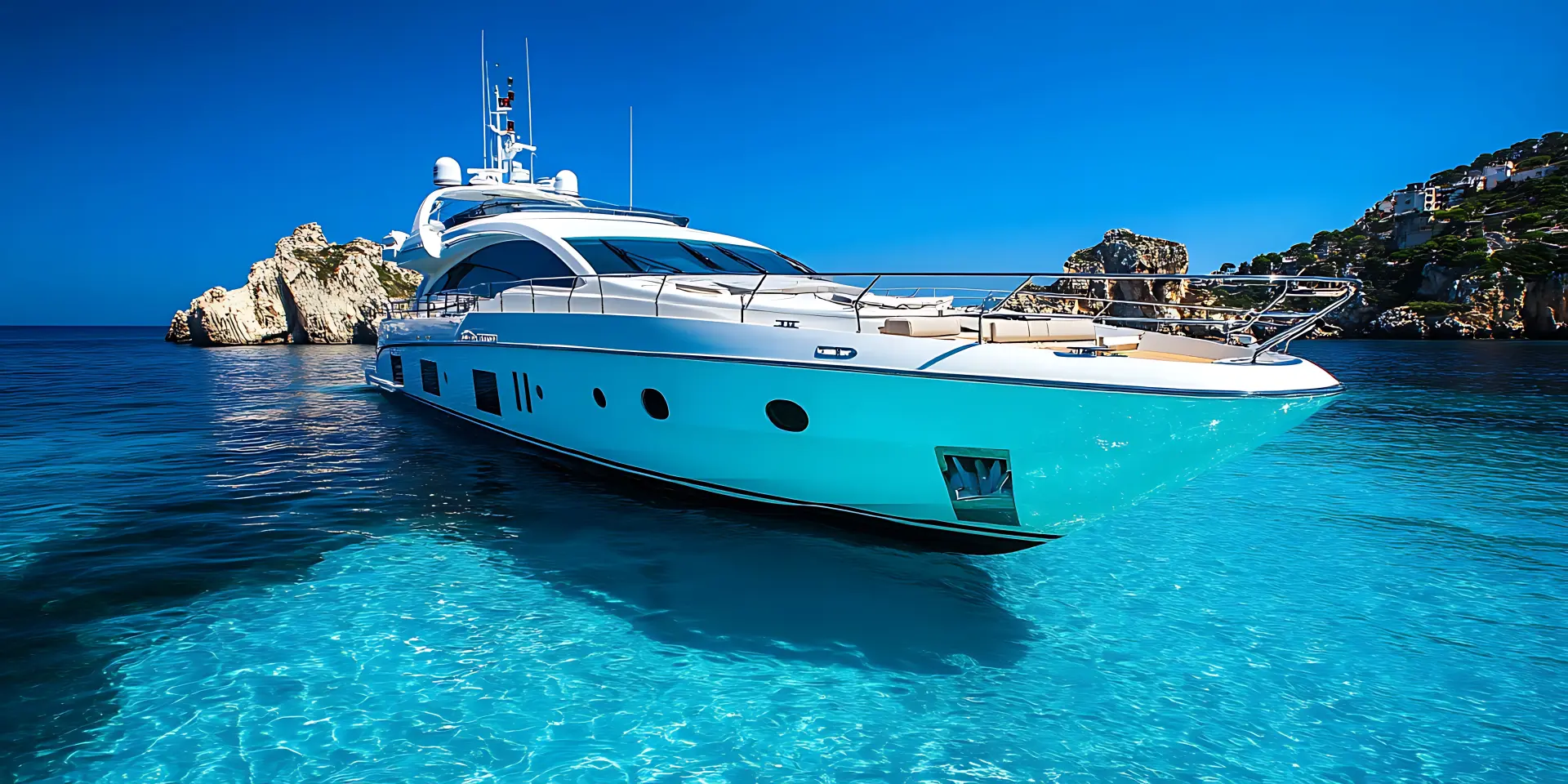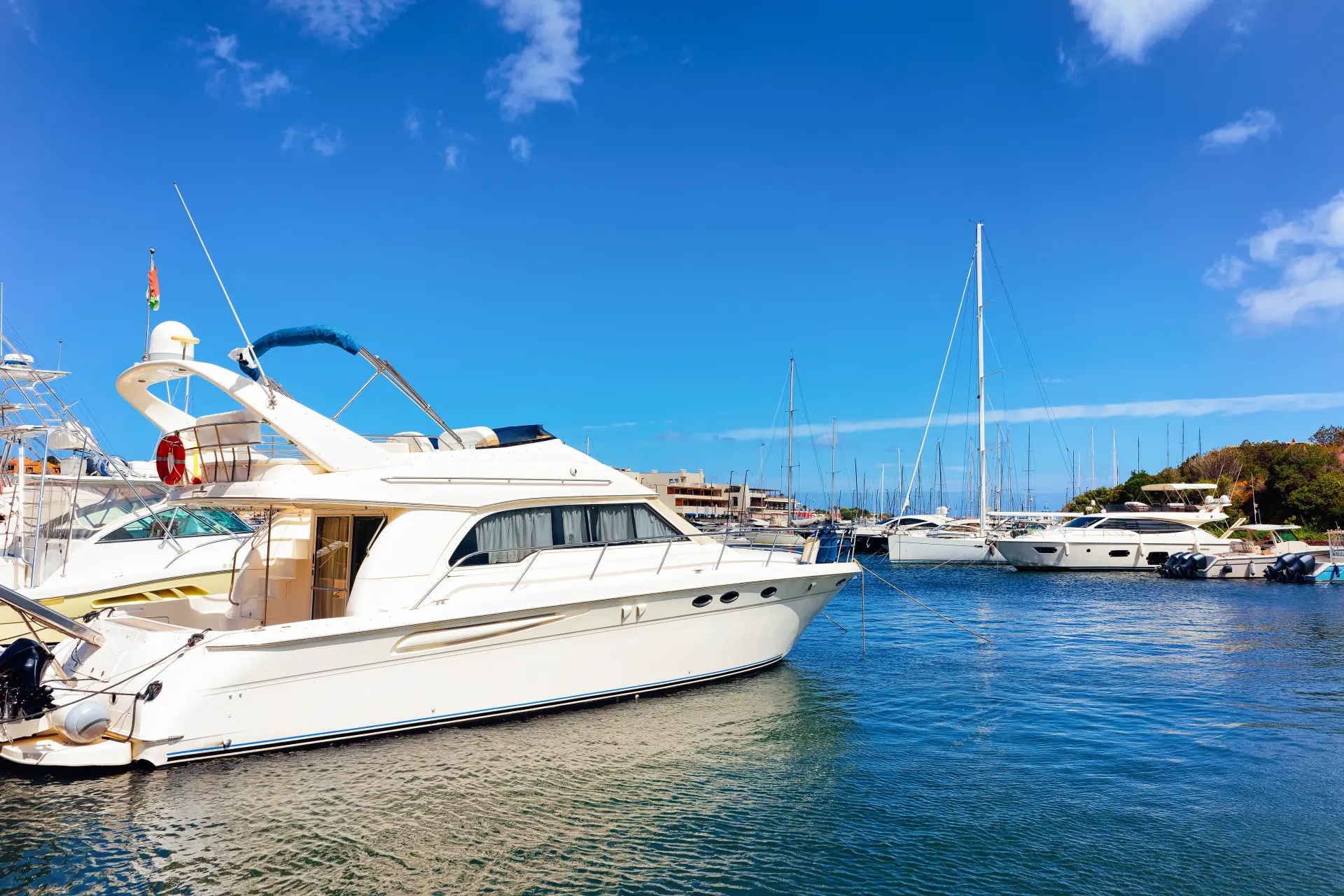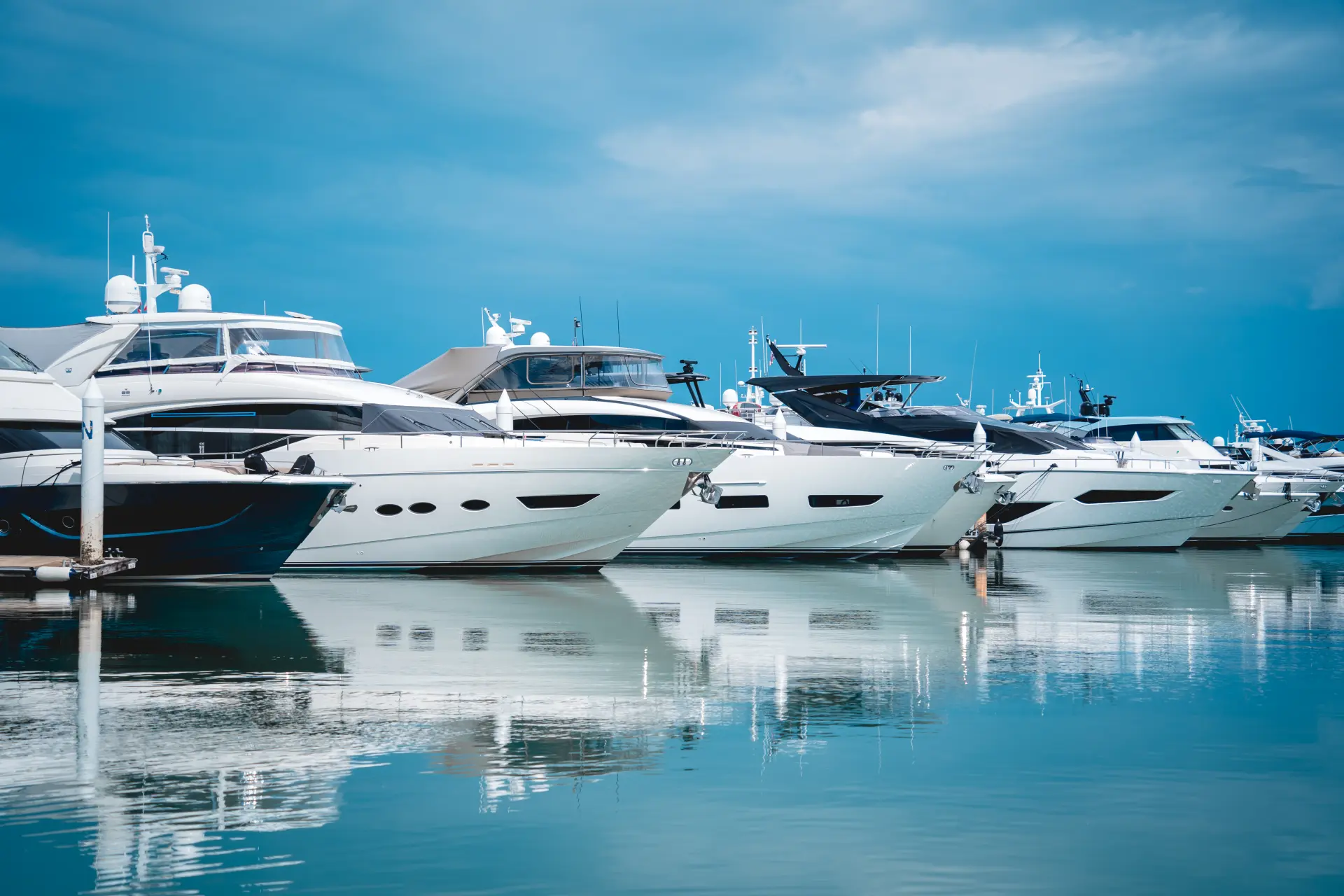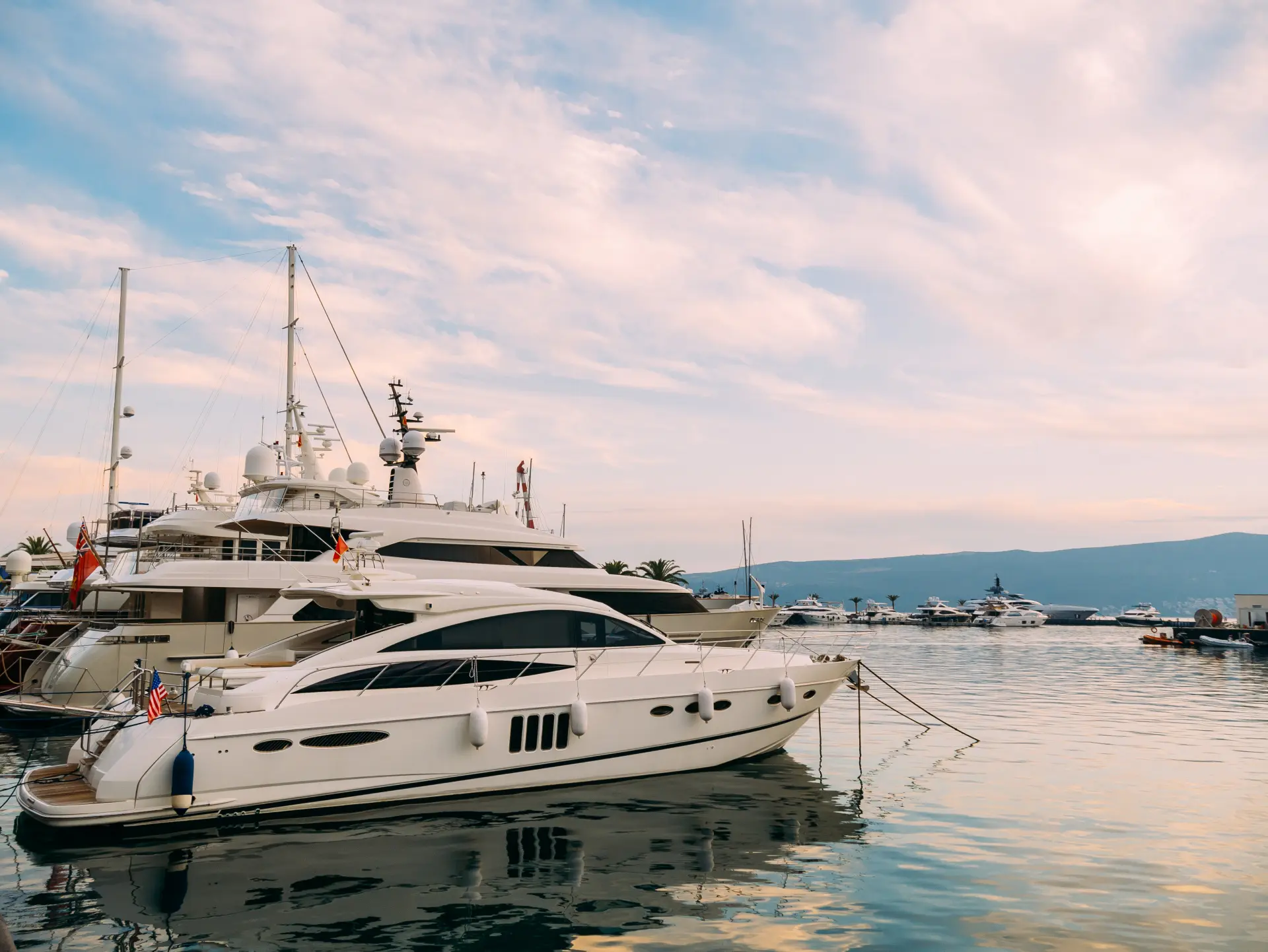We look at how to spot common problems with yacht engines. Unsure if your yacht’s engine is performing at its best?
Learn how to detect the warning signs of engine trouble, tackle overheating and electrical issues, and know exactly when professional help is needed. Keep your voyages safe and worry-free by staying on top of your yacht’s essential maintenance.
The Importance of Yacht Engine Maintenance
Looking after a yacht's engine is extremely important because it ensures your yacht runs smoothly and safely.
Regular maintenance helps prevent unexpected breakdowns, especially when you're out at sea and far away from immediate assistance. Just like cars, yacht engines require regular check-ups to catch minor problems before they turn into major, expensive issues.
Consistent maintenance can also extend your engine's lifespan, saving you money over time. Simple tasks, such as regularly changing the oil, inspecting belts and hoses, and cleaning or replacing filters, can significantly enhance your engine's performance.
Neglecting regular yacht engine maintenance can cause minor issues to escalate rapidly. For instance, dirt, debris, and water infiltration can lead to rust and accelerated wear, severely impacting engine performance.
Engine breakdowns at sea pose considerable risks, potentially putting your safety in jeopardy. Regularly inspecting your engine can help identify issues early, allowing for quick and easy fixes. Regular maintenance gives you peace of mind, knowing your yacht is reliable and ready for use whenever you want to sail.
Moreover, a well-maintained engine runs more efficiently, consuming less fuel and reducing your operational costs.
Efficient fuel use not only saves money but also benefits the environment by reducing emissions. Clearly, keeping your yacht's engine in optimal condition is vital for enjoyable, safe, and cost-effective sailing adventures.

Recognising Early Warning Signs of Engine Trouble
Strange Noises
If your yacht engine suddenly makes loud or unusual noises, it could indicate a problem. Knocking or banging sounds often suggest loose parts or internal engine damage.
Whining or squealing noises typically point to worn-out belts or pulleys. It’s crucial to turn off your engine immediately upon hearing unusual noises to avoid further damage and higher repair costs.
Take time regularly to listen carefully to your engine when starting it up, and during operation, so you can notice any changes early.
Smoke or Strange Smells
Smoke or strange smells from your engine are serious warnings. Blue smoke often indicates that oil is burning within the engine, potentially harming critical components.
Black smoke can signal excessive fuel usage or insufficient air reaching the engine. White smoke typically means water contamination within the engine, leading to corrosion and significant damage.
Unusual smells, such as burning rubber or fuel odours, also indicate issues requiring immediate attention. Always check the source of smoke or strange smells right away, as catching these signs early can prevent costly damage and ensure your safety.
Leaks
Noticing leaks of oil, fuel, or water around your yacht's engine is another clear sign something is amiss. Such leaks can cause the engine to lose essential fluids needed for proper functioning.
Regularly inspect beneath the engine and around hoses, pumps, and connectors for signs of moisture or drips. Check fluid levels regularly as well.
Even small leaks can quickly become major issues if not addressed promptly. Early detection and repair of leaks can prevent more severe, costly damage. Make it part of your routine to inspect the engine bay regularly for any unexpected signs of leaks.
Difficulty Starting or Loss of Power
If your engine struggles to start or experiences unexpected loss of power, this can indicate serious underlying issues. Common causes include weak batteries, dirty or contaminated fuel, faulty spark plugs, or blocked fuel filters.
Sudden loss of power while sailing could be dangerous, so always inspect your engine carefully if starting becomes difficult or power seems reduced. Regularly check and maintain your battery, fuel system, and ignition components to prevent these problems.
Keeping a log of engine performance can also help identify gradual loss of power or starting difficulties before they become serious.
Overheating Problems
Engine overheating occurs when your yacht's engine becomes excessively hot, risking severe internal damage. Overheating usually results from problems within the cooling system.
Clear signs include a rapidly rising temperature gauge, steam or smoke near the engine, and abnormal engine noises. If overheating continues unchecked, it can lead to warped or cracked engine parts, causing costly damage.
The most common causes of overheating include blockages or failures in the cooling water pump. The pump's job is to circulate seawater through the engine to keep it cool. Any blockage, such as seaweed or debris, can prevent adequate water flow, causing rapid temperature increases.

Additionally, corrosion or wear in the cooling system components can also lead to overheating. Regular maintenance checks should include inspecting and cleaning the cooling water intake, replacing worn-out hoses, and checking the water pump.
If your yacht’s engine overheats, immediately turn off the engine to prevent further damage.
Allow the engine to cool completely before examining it for blockages, damaged hoses, or broken parts. Conducting regular inspections of the cooling system and promptly addressing any issues helps prevent overheating and ensures your yacht remains safe and seaworthy.
Also, consider keeping spare parts, like hoses or a water pump impeller, on board for quick fixes at sea.
Electrical System Failures
Electrical system failures are common in yacht engines and can significantly impact your yacht’s safety and reliability. Your yacht's electrical system consists of vital components, including the battery, starter motor, alternator, and extensive wiring. A failure in any of these parts can prevent the engine from starting or cause sudden shutdowns.
Typical signs of electrical problems include dimming or flickering lights, rapid battery drain, intermittent equipment failure, and difficulties starting the engine. Corroded connections, damaged wiring, and faulty switches are common culprits.
Marine environments expose electrical components to saltwater and moisture, increasing the likelihood of corrosion and electrical failures. Always check your yacht's electrical system after exposure to harsh weather or rough seas.
Regularly inspecting the battery terminals, wiring connections, and switches for signs of corrosion or wear is crucial. Clean terminals and connections regularly, and replace any frayed or damaged wiring immediately.
Consider installing waterproof covers or using corrosion-resistant products to protect your electrical system. Keeping your yacht's electrical system in excellent condition will prevent unexpected failures and ensure smooth, uninterrupted sailing. Regular professional inspections of your electrical system are highly recommended to catch potential issues early.

When to Seek Professional Repairs
Serious Mechanical Issues
Certain yacht engine problems require professional expertise. Issues such as internal engine damage, gear transmission troubles, or damaged propeller shafts must be addressed by qualified mechanics.
Loud knocking noises, metal debris in engine oil, or sudden engine failure indicate serious mechanical issues needing urgent professional repair. Avoiding professional assistance in these cases could result in extensive and costly damage.
Persistent Overheating
If your yacht continues to experience overheating despite checking basic components, professional intervention is essential.
Persistent overheating suggests deeper, potentially hidden problems within the engine's cooling system.
Professional marine engineers can accurately diagnose and repair these issues, utilising specialised tools and knowledge that are beyond typical DIY capabilities.
Complicated Electrical Issues
Complex electrical issues, especially involving intricate wiring or advanced electronics, generally require professional marine electricians.
If standard troubleshooting doesn't resolve electrical problems, contacting a professional is essential. Electrical faults can be hazardous and difficult to fix without specialist knowledge and equipment.
Regular Professional Maintenance
Even without visible problems, regular professional check-ups are highly recommended at least annually. Professional inspections detect potential issues early, preventing them from escalating into serious problems.
Routine professional maintenance ensures your yacht engine remains in peak condition, providing reliability, safety, and peace of mind every time you set sail.
Keeping a skilled professional’s contact details on hand will help you address urgent problems quickly and keep your yacht operating at its best.
Knowing when to rely on an expert is a key part of responsible yacht ownership, ensuring you can continue enjoying safe and relaxing journeys for years to come.
Need professional yacht engine repairs in Southampton, Portsmouth, Bournemouth, Poole, Worthing or Brighton? Click below to find trusted yacht engine specialists and marine maintenance near you.

